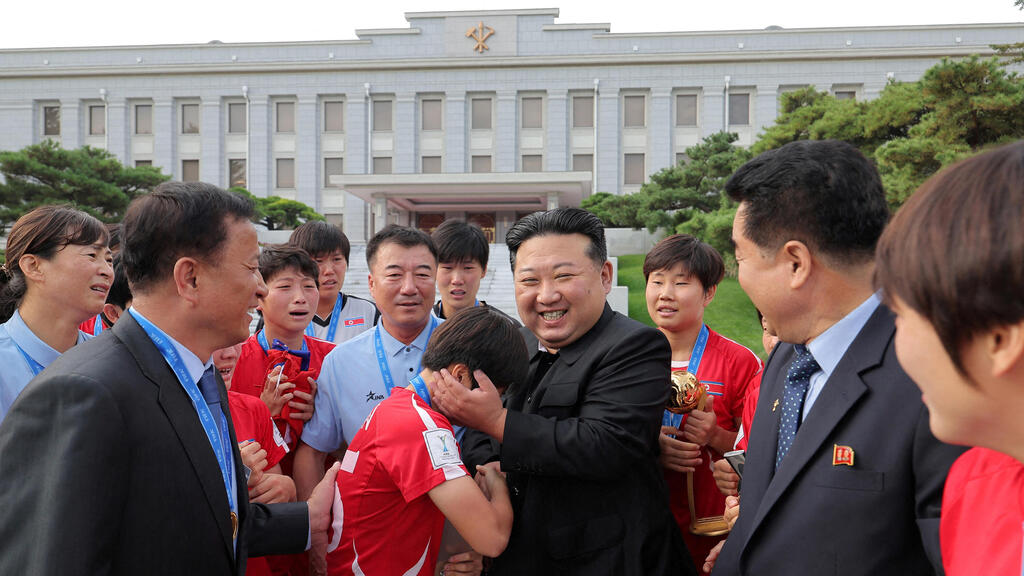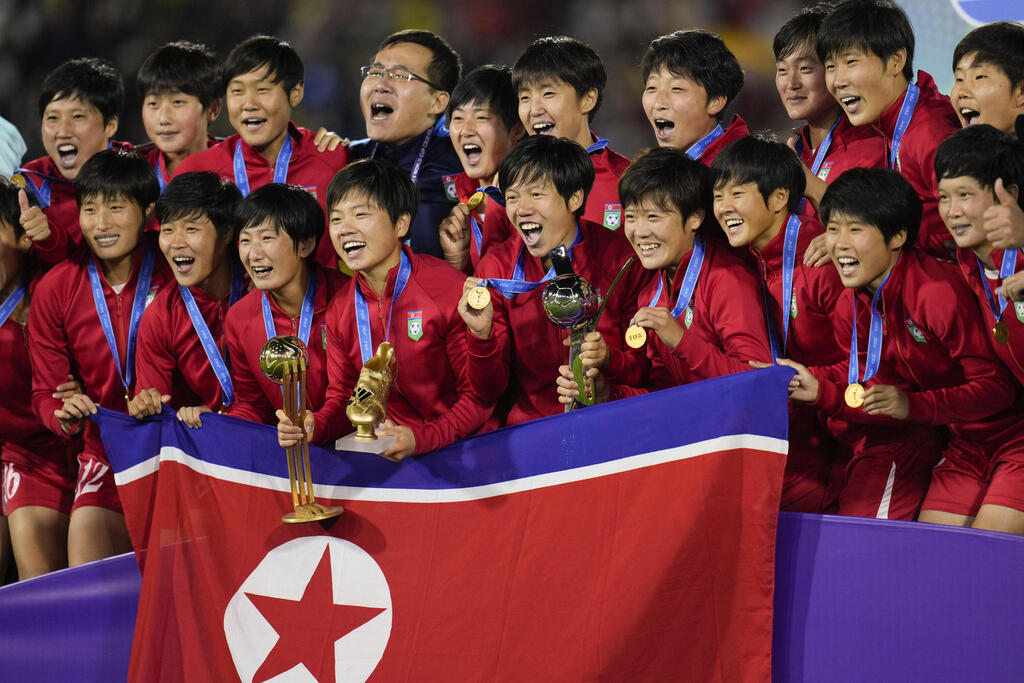Getting your Trinity Audio player ready...
What’s the first thing that pops to mind when you hear "North Korea"? Dictatorship, nuclear weapons, government radio blaring in every household with no volume control, six workdays plus one “volunteering” day, mind-boggling military drills, personality cults, teachers required to master the accordion, three generations punished for one family member’s crime, a demilitarized zone, mortar executions and fewer than a thousand citizens with internet access. Sound a little crazy? Then here’s something even wilder: a women's soccer empire.
This week, North Korea’s U-17 women’s team clinched the World Cup title after beating defending champions Spain in a penalty shootout (and, just as important to them, defeating the “Great Satan” USA with a 1-0 win in the semifinals). This is the third time the North Korean women have won the U-17 World Cup (2008, 2016, 2024), matching the country’s three titles in the U-20 World Cup (2006, 2016, 2024). In September, North Korea’s U-20 team bested Japan 1-0 to complete the country's second-ever World Cup double in the youth categories.
What's behind the success of North Korea’s young women’s teams? And, perhaps more intriguing: why doesn’t it carry over when these players move up to the senior squad? North Korea has never qualified for the Women’s World Cup.
A success story stopped at 20
Dictatorial regimes have long used national sports as political leverage. Internally, sports victories boost a leader’s prestige, strengthen personality cults and make citizens feel they live in the greatest country on earth. Internationally, victories reinforce national pride and a distinct identity. North Korea’s priority is winning—not nurturing talent that will compete at the adult level. Recognizing the vast skill gap between North Korea’s adult teams and global elite teams, the regime chose to focus on training young girls. So far, this gamble has paid off in both sports and politics.
Young players are handpicked through a stringent selection process and taken to elite soccer academies where they train under strict discipline. Concepts like “fun” or “joy of the game” don’t make it past the front gates. The girls are instructed to deliver results. This approach was evident in the team’s recent matches: a 9-0 win over Costa Rica, 6-2 against Argentina and three 1-0 nail-biters from the quarterfinals on, culminating in the U-20 title.
But why does this success stop at the youth level? Two main reasons don’t even relate to soccer. First, in 2011, senior players were caught in a doping scandal (North Korea claimed the five athletes involved tested positive after using a traditional remedy following a lightning strike). Then, since COVID-19, the country has remained largely closed off. Regulations only relaxed recently, but North Korea’s senior team has still only played within Asia and against Russia, another country banned from official international games. Additionally, players like Cho Il-sun, the U-20 World Cup’s top scorer and MVP, have no incentive to join competitive foreign leagues, as their earnings would simply be funneled to the state as a creative way to dodge international sanctions.
Commentators and opposing players speak of North Korea’s overwhelming drive. While other players compete for personal achievement, family or country, North Korean players represent their entire way of life. For them, beating Spain—or, of course, the U.S.—isn’t just a soccer win; it’s a victory of socialism over capitalism. This willpower shows in their ability to play through injuries. "We thought they’d get tired at some point,” said Real Madrid and Spain player Ainhoa Dorado after their loss, “but they didn’t let up for 90 minutes.”
This intense mindset comes with social perks that may be North Korea's version of capitalism: players who bring success can earn residency in Pyongyang, where they receive apartments and escape from rural areas where food is scarce, and medical infrastructure is lacking. In the provinces, residents face higher risks of forced labor, forced abortions, sexual abuse or even freezing in the winter with no heating. Living in the capital shields athletes from these daily hardships.
North Korea’s dominance, which includes the recent Asian Cup win, has resulted in 13 wins out of 14 matches across the two tournaments, including a 4-0 victory over England. This new generation of players remains a mystery to the world, though, just like the North Korean state itself. North Korea is now ranked ninth in the world in women’s soccer and could make a serious showing in the 2027 World Cup in Brazil.
The leader commands, the fans arrive
North Korea’s isolation, often a setback, has advantages on the soccer field. Its teams are total unknowns. No scouting, no game tapes, no advance intel—just complete surprise. “I remember playing them in 2007 and tying,” recalled former U.S. player Heather O’Reilly. “We thought they’d be thrilled to get a tie, but they were disappointed. I realized then how little we knew about them—or how good they were.”
Yet there’s another side to this isolation, especially with a supreme leader who can shift the country's priorities in a snap. Kim Jong Un is passionate about women’s soccer, seeing it as both a sport and a source of international prestige. While other women’s teams celebrate five-figure home-game crowds, North Korea boasts average home-game crowds of 50,000, most of them there because the government requires it. What will happen when Kim’s interest fades, or if his teams bring him shame?
Who knows? For now, enjoy North Korea's surprising soccer story. Say it out loud: North Korea. Empire. Women’s soccer.
Get the Ynetnews app on your smartphone:



